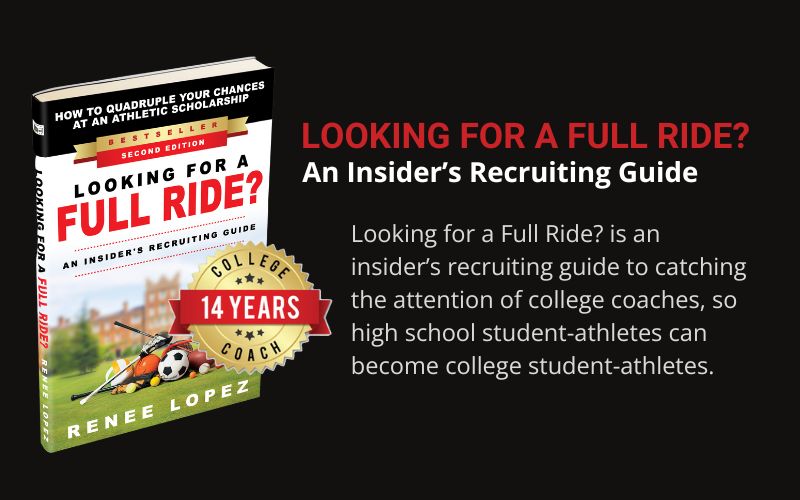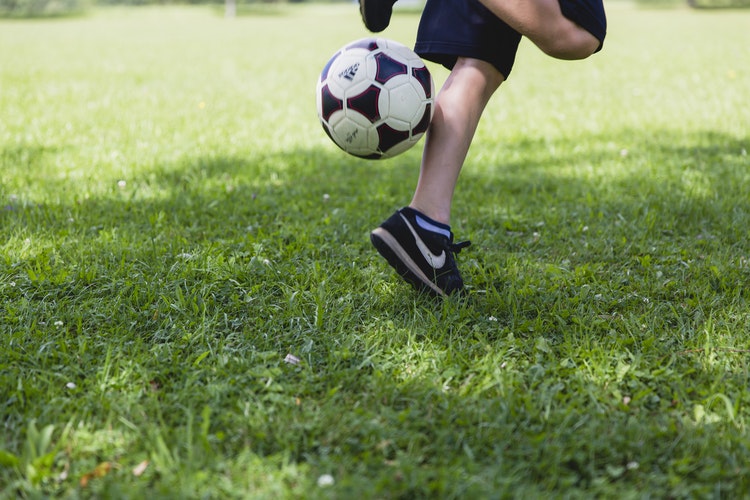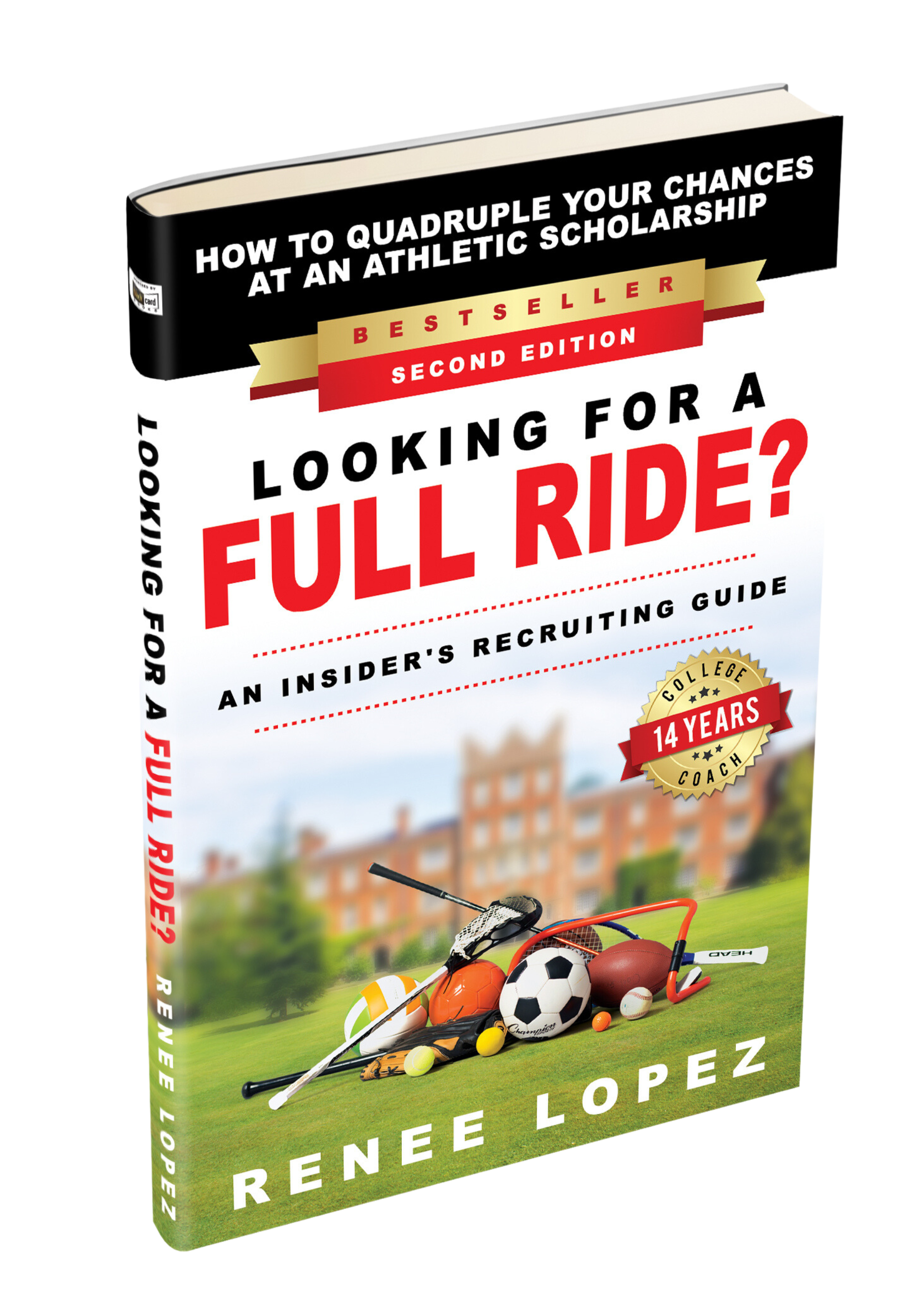11 Important Steps to Take After Signing Day
The congratulatory high fives, pats-on-the-back and photos opts have tapered off. You can just focus on high school graduation since you have officially signed! Your commitment is official with the signing of your National Letter of Intent (NCAA DI or DII), Letter of Intent (NAIA), or other financial package to join a college program and receive athletic scholarship. So now, besides some more press interviews, it’s all smooth sailing until August now, right? Wrong!
Many families believe the signing date completes the recruiting process. However, here in part 3 of our series “What Does Committing to An Athletic Program Really Mean?”, I address what steps need to take place over the next few months as you prepare for entering college. If you missed the first two parts of our series, please visit them Part 1: 5 Important Steps Before Signing and Part 2: 9 Important Aspects of Signing Day.
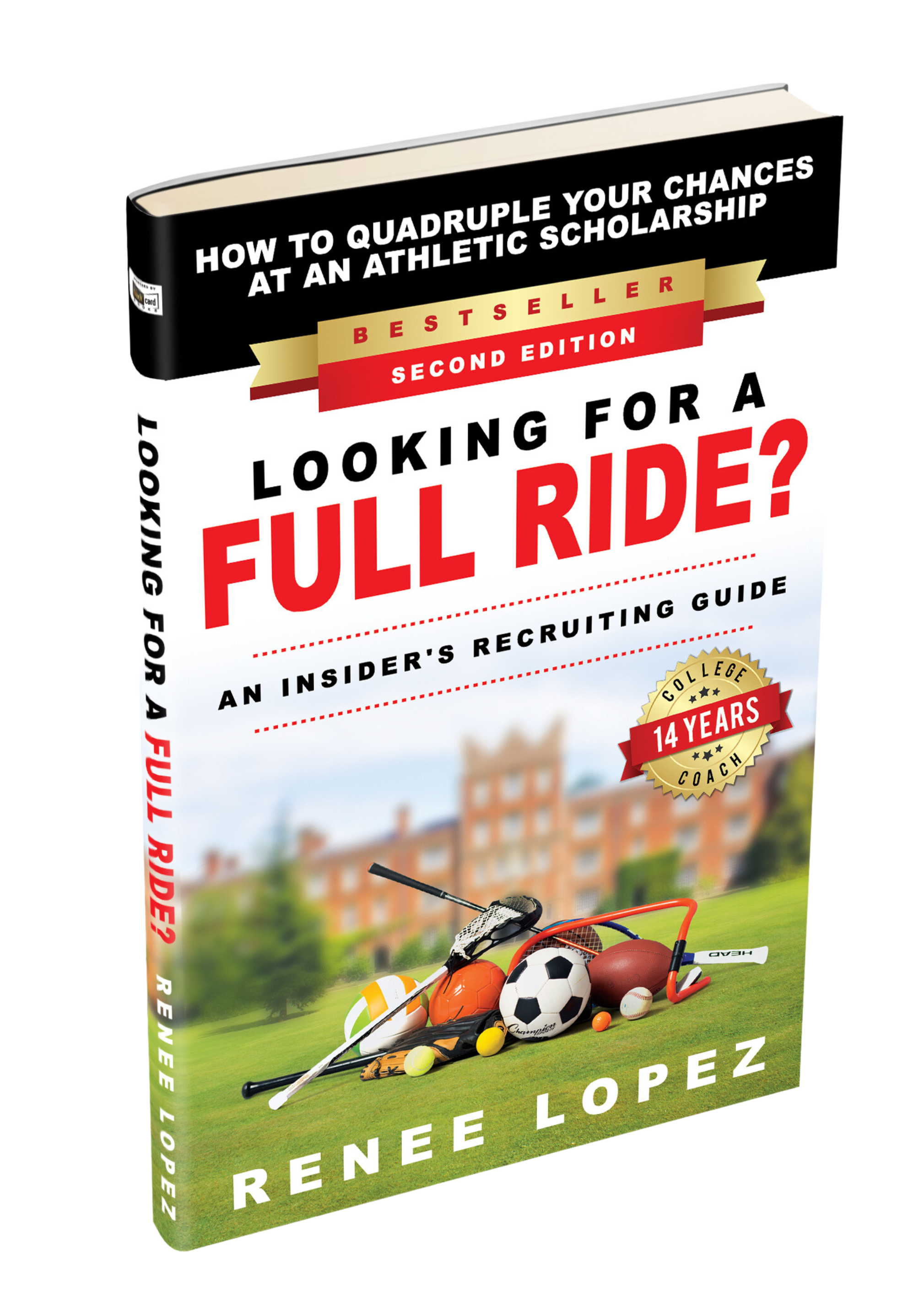 Having been a college coach for 14 years across NCAA Division I, II, III and NAIA, and serving as a NCAA Compliance Director for 13 sports, I have seen a lot of signed student-athletes look to coast into August. In addition, over the past 2.5 years, I have interviewed 65 college coaches and athletic directors about entire recruiting process for my book, Looking For A FULL RIDE?: An Insider’s Recruiting Guide. I have combined my own personal experiences with these interviews to provide you with a strategy to help you prepare for this major life transition.
Having been a college coach for 14 years across NCAA Division I, II, III and NAIA, and serving as a NCAA Compliance Director for 13 sports, I have seen a lot of signed student-athletes look to coast into August. In addition, over the past 2.5 years, I have interviewed 65 college coaches and athletic directors about entire recruiting process for my book, Looking For A FULL RIDE?: An Insider’s Recruiting Guide. I have combined my own personal experiences with these interviews to provide you with a strategy to help you prepare for this major life transition.
I Signed…Now What?
1. Tell all other recruiters that you have signed and committed to a school.
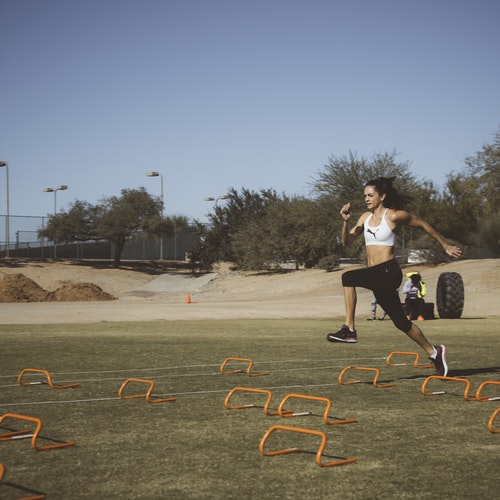
This should have already been completed when you verbally committed to the college. However, if you have not already, contact each coach to let them know of your decision. If you do not inform them, they may still try to recruit you which is against most a basic moral code of recruiting ethics. Does it still happen? Yes. Make it very clear to both the coaching and admissions staff of every college you have been interacting with over your recruiting process.
I suggest you do it in writing via email in a very professional way. For some coaches you have really connected with during the process, you may want to call them directly to let them know. It is important to not burn any bridges in these conversations. First, you want to leave a good reputation of your club or high school program for those younger than you who may wish to pursue that school. Second, you never know if something may happen down the road and you are looking to transfer to a different college. Also, it is highly likely the coach you committed to is connected to another coach recruiting you. College coaching world is VERY small and well connected. You would not want a bad interaction with the school you are turning down to get back to your new college coach.
2. Do not let “senioritis” take over in your classes.
Don’t slack on your academics. Trust me, I get it. You just want this whole high school thing to be over and head off to an exciting college program. However, you must still graduate from high school and many academic scholarships and admissions standards consider all of your academic semesters. Coaches really do care about this as it demonstrates your work ethic and commitment (and those are not two areas you ever want your future coach to question!).
3. Make sure you have been fully accepted into the university.
While you may think this goes without saying, but many student-athletes have the impression that since they signed with the college, they do not have to complete any other part of the application process. Most kids are accepted prior to signing. But if you do not have an acceptance letter in your hands from the admissions department, contact them immediately to find out what they still need from you to complete the process.
4. Plan your next visit to the college prior to attending.
After you have signed, I encourage you to ask your coaching staff and admissions personnel when would be a good time to come for orientation and answer any further questions. Some schools will have you do an official visit after you have signed, while others will do it prior to signing. Many schools only offer unofficial visits which means you cover the cost of the trip. Remember coaches are juggling a lot of recruits and you are managing one college so take the initiative to investigate what the school wants and needs from you.
They may want you to attend a spring competition to meet other members of the incoming freshmen class, register for classes, purchase books, spend more time with the current team, get your student ID, attend a summer camp, and other activities to get a better feel for being a student-athlete there. Every college I have worked for handles this process in its own way. Some want you to go through the admissions department or academic major department, while others have the athletic staff walk you through this. It’s important to ask your coach the specific steps they would like from you!
5. Complete all other necessary paperwork for the college.
Some colleges will need you to apply for housing and meet with an academic adviser to plan out classes. Most institutions will want you to complete your FAFSA if you haven’t already to see if you qualify for any other aid in terms of scholarships, grants, or loans. Some schools will want you to make a deposit for housing or registering for classes. You should also check what fees were not included in your financial aid offer. Sometimes separate computer, lab, health, and activities fees needs to be paid.
You will also need to complete medical paperwork for the school and also for the athletic department. Many schools are also having you complete a physical and sickle cell testing prior to competing. Check with your institution on how they handle these procedures as some bring in doctors during preseason and other schools expect you to complete it with your doctor at home.
6. Research if re-taking your ACT/SAT tests could help you win more academic or community scholarships.
You may be just a few points away from reaching a different tier of academic scholarship allotment. Ask the admissions or financial aid office if a few points increase could make a difference. Also, check with your coach if your scores are high enough for eligibility with the NCAA, NAIA, etc.
(Side note: If you need help raising your scores, I highly recommend you connect with Jennifer Henson, owner of GoalDigger: ACT Prep.)
7. Arrange to have your final transcripts sent to both the university and the Eligibility Center (NCAA or NAIA).
If you are playing NCAA DI, DII, or NAIA, you will need to make sure these steps are completed to ensure you have all documents submitted for final certification from the governing body during the summer.
Often times, student-athletes wait to request these from their high school in June or July when counseling staff may be on vacation or only working part time. This timing is extremely important, especially for fall sports, as it takes the Eligibility Center a lot of time to process the thousands of kids graduating from high school and preparing to play that fall in just a few short months. Put in the request prior to school being let out for the summer. Ask for these items to be sent immediately your final senior semester grades and proof of graduation have posted on your transcripts.
 8. NCAA student-athletes need to make sure they request final amateurism certification.
8. NCAA student-athletes need to make sure they request final amateurism certification.
When you originally register with the NCAA Eligibility Center, you will be asked some basic questions about your amateurism status (i.e. have you been paid to play sports, etc). This often happens early in your high school career, so it must be revisited during the spring of your senior year, typically April 1. Make sure you go back in to the system and complete this paperwork as it only takes a few moments!
9. Apply for outside scholarships.
Most outside scholarships from a bank, community group, church, or business can be stacked on top of your other scholarships being offered at your college (doublecheck with your specific college to make sure). We wrote about these opportunities a few weeks back in our blog, “My First Choice College Didn’t Offer A FULL RIDE, But I Still Want To Go There! How Do I Pay For It?”
10. Make good choices on social media and in the community.
The college does not have to honor the commitment letter if you get into trouble with the law or make poor choices on social media platforms that disrespects yourself, the athletic department, or the university. You often hear about things you shouldn’t put your Twitter, Facebook, Instagram, but what positive topics should you post as a student-athlete? What Should I Post on Social Media?: 5 Strategies.
11. Prepare yourself both mentally and physically for playing at the next level.
Ask about getting a summer workout plan from the coaching staff. Many NCAA DI programs enroll student-athletes during the summer and sometimes even spring if they graduated early, to get acclimated to being a student-athlete.
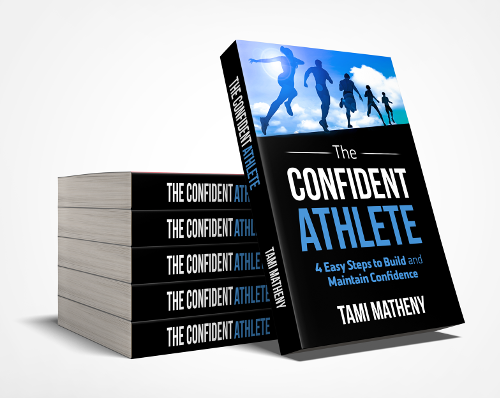 Finally, ask about any required reading or watching specific movies prior to entering the program. Some coaches may want you to study leadership, teamwork, mindset, resilience, and building confidence. I highly recommend 2 books as you prepare for college: 1) Energy Bus by Jon Gordon, 2) The Confident Athlete: 4 Easy Steps to Build and Maintain Confidence by Tami Matheny, and 3) Sometimes You Win, Sometimes You Learn by John Maxwell (all are available for purchase on Amazon). Each provide a perspective of how you can impact your team’s culture beyond your athletic talent.
Finally, ask about any required reading or watching specific movies prior to entering the program. Some coaches may want you to study leadership, teamwork, mindset, resilience, and building confidence. I highly recommend 2 books as you prepare for college: 1) Energy Bus by Jon Gordon, 2) The Confident Athlete: 4 Easy Steps to Build and Maintain Confidence by Tami Matheny, and 3) Sometimes You Win, Sometimes You Learn by John Maxwell (all are available for purchase on Amazon). Each provide a perspective of how you can impact your team’s culture beyond your athletic talent.
While many student-athletes think that signing day ends the recruiting process, I hope you can see that it is just the beginning of your athletic career. If you appreciate my free blogs, please sharing them with others with the icons below via Facebook, Twitter, Linkedin, and Pinterest. I encourage you also tell people about our FREE Facebook groups below!
Want some help with the recruiting process? Join some of our 9 Facebook Groups:
- Parents of High School Student Athletes Walking Through The Process (All Sports)
- Beyond Xs & Os 4 HS Athletes: Health, Recruiting, Team Building, Mental Training (All Sports)
- Athletic Recruiting Education for Principals, AD's, and Counselors (All Sports)
- Club/HS Coaches Learning College Recruiting Process (All Sports)
- Play College Soccer (Soccer Specifically)
- College Recruiting for GK's (Soccer Specifically)
- Positive Team Building for Pro, College, HS, and Youth Coaches (All Sports)
- Mindset & Leadership Lessons for Athletes, Coaches/Teachers, & Business Leaders (All Sports & Business Leaders)
- Christian Competitors (Coaches & Athletes Serving Christ @Field/Court/Gym) (Sports Ministry for All)
Did you know Coach Renee Lopez can come to your school or sports organization?
Email info@lookingforafullride.com for more details.
Would you like her to do individual consulting with your family to get an insider’s perspective?
Email info@lookingforafullride.com for more details.
Coach Renee Lopez
As a 17 year coaching veteran, Coach Renee Lopez is a recruiting expert for high school student-athletes. She uses her NCAA Division I, II, and NAIA Head Coaching experience to help families navigate the recruiting process to be identified by college coaches and help them find the right “fit” for playing at the next level. She has produced 3 All-Americans, over 30 All-Conference athletes and Her teams have been honored with awards for team academic accomplishments, sportsmanship, and sports ministry. In addition, Coach Renee Lopez has been named Coach of the Year by her peers.
She presents recruiting seminars across the country, has recently been featured in USA Weekly, with the National Alliance for Youth Sports, on SiriusXM Radio and ESPN Radio. She is the author of the book, Looking For A FULL RIDE?: An Insider’s Recruiting Guide where she has interviewed over 65 college recruiters across all sports and college levels. In addition, she runs 9 Facebook groups to help facilitate conversations on college recruiting education, coaching education, leadership development, and sports ministry. She is also a certified speaker, trainer and coach for the John Maxwell Team, Jon Gordon Company, 3Dimensional Coaching, and the Positive Coaching Alliance.
She also does private consulting for student-athletes and their families to help in understanding the often daunting process of recruiting. (See one family’s testimonial.) If you are looking for help in the college recruiting process, please email Coach Renee Lopez at info@lookingforafullride.com.
